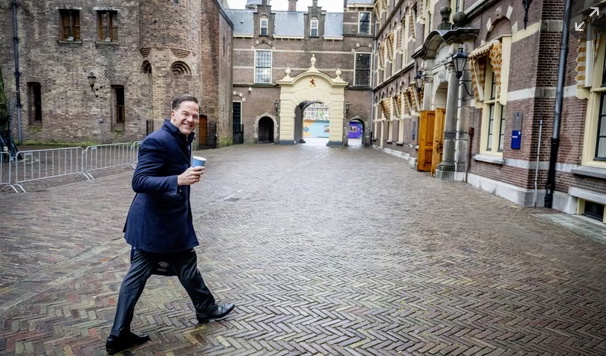Incoming NATO chief Mark Rutte takes up one of the world’s most powerful roles this week – leading the nuclear-armed Atlantic alliance.
But even if the former Dutch PM wanted to shake things up by succeeding Jens Stoltenberg, he probably be successful.
The reality of working in NATO means that Rutte would be leading a risk-averse civilian bureaucracy, with the hard power ultimately vested in member states and, above all, the US.
And in many ways, the 32 NATO countries – by swapping one soft, middle-aged, northern European man, a former prime minister, for another – have chosen another of the same kind to steer the alliance through turbulent times. A senior NATO diplomat told AFP, speaking on condition of anonymity to avoid discussing internal deliberations:
In such a difficult geopolitical situation, keeping continuation and the same foreign policy and security line is very important.
In more than 10 years at the helm of NATO, Stoltenberg has earned praise for calmly managing the sometimes fractious alliance.
The Norwegian helped keep then US President Donald Trump in line, supported Ukraine while keeping NATO out of a war with Russia. Jamie Shea, a former senior NATO official now at the Chatham House think tank, said:
Allies were looking for somebody who has many of the same qualities as Stoltenberg and will continue in the same direction: Prime Minister, well-connected, long experience, good address book, has handled Trump.
Rutte, a favourite of the key powers – the US, Britain, France and Germany – meets all these requirements.
A veteran who led complex coalitions in the Netherlands for 13 years, he has a wealth of experience that can be used to get countries with different – and often competing – interests on the same page. A senior US official said:
He is a consensus builder with an unflinching commitment to the transatlantic alliance.
The inauguration will take place in a formal ceremony. The ceremony will be broadcast live on the NATO website, live on EBU News Exchange, EBU WorldFeed and YouTube.
